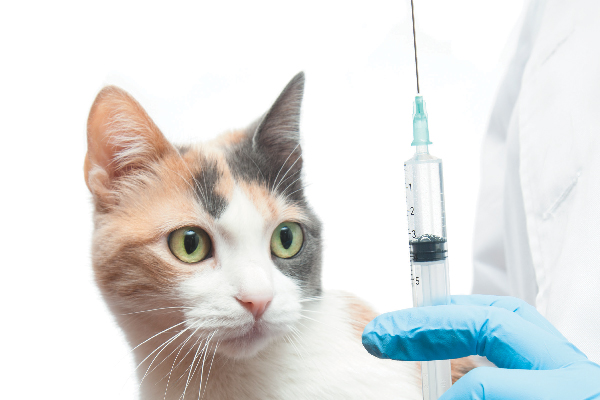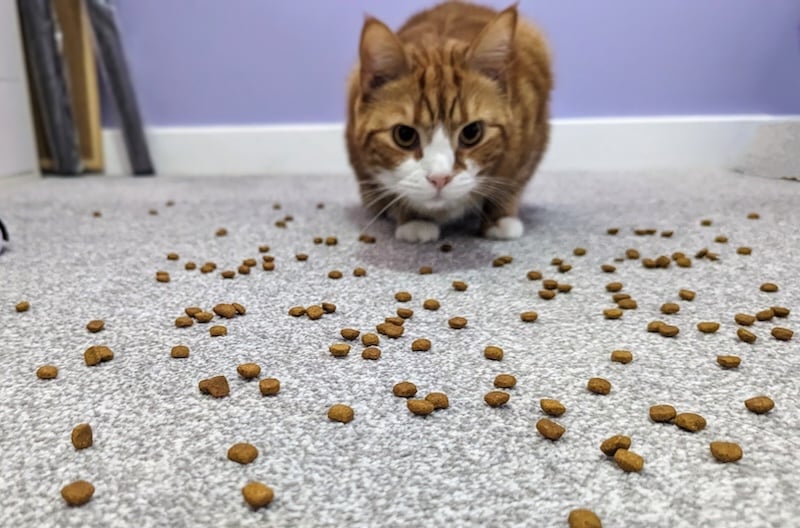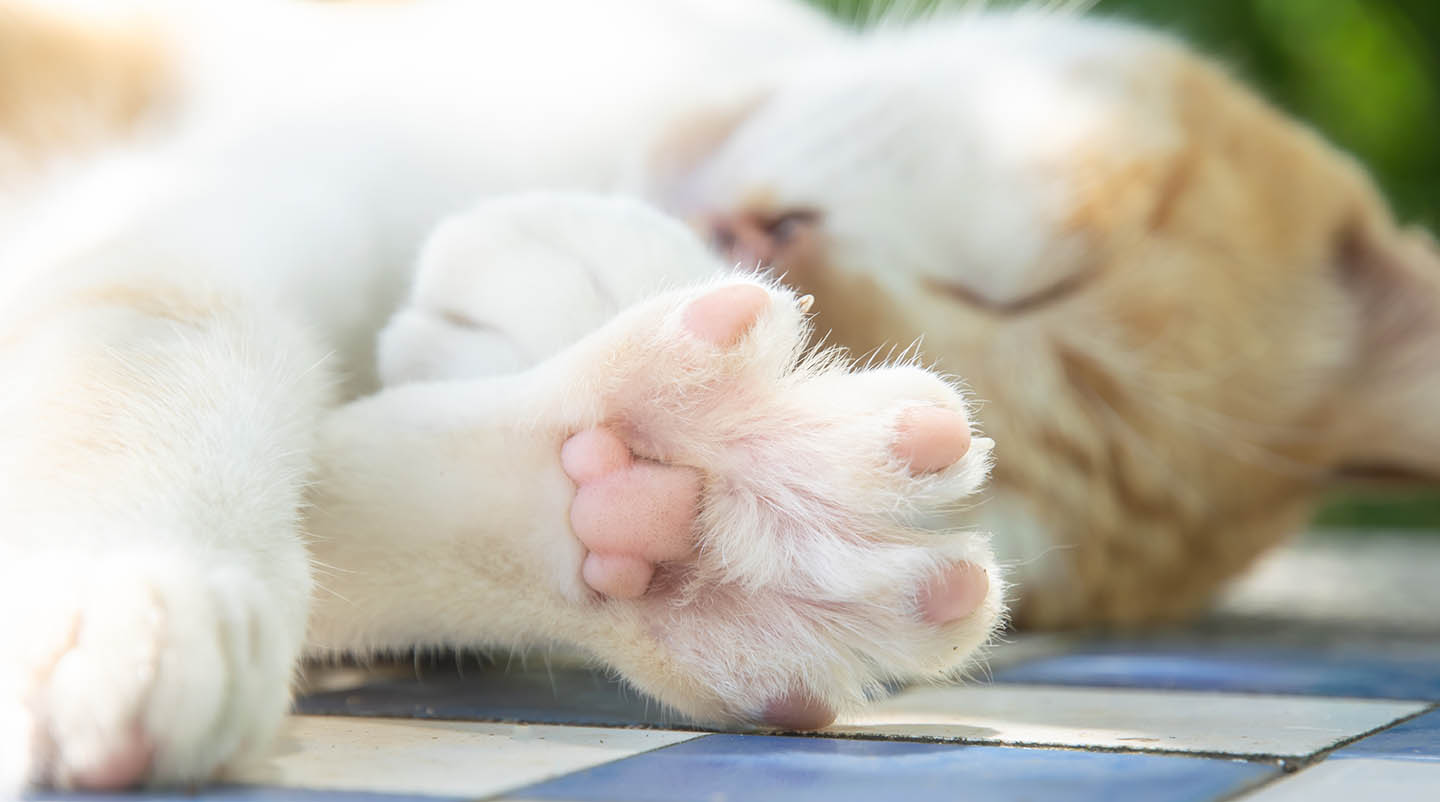What vaccines do cats need? Many cat caretakers have very strongly held beliefs regarding vaccines. So it’s not surprising that vaccinations in human health have become controversial. And that controversy has clawed its way into the realm of cat health.
What vaccines do cats need? Are we under-vaccinating or over-vaccinating our cats?
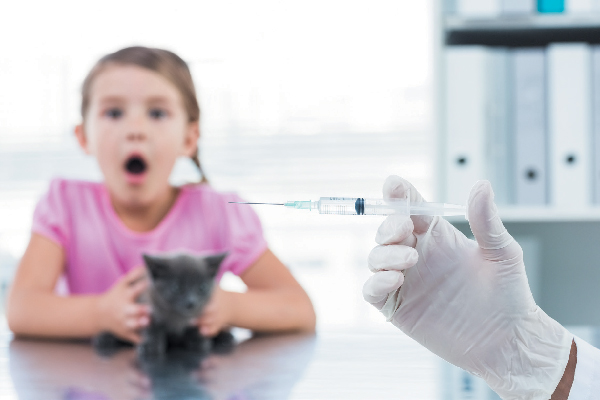
When researching this article, I did not speak to experts with all possible perspectives, of which there are many on the topic of vaccines, or I could have authored a book. I spoke with leaders with undeniable expertise, many who helped craft the American Association of Feline Practitioners’ (AAFP) Guidelines for Vaccines.
Love or hate vaccines, it’s a fact: Vaccination plays an important role in the control of infectious diseases, both for an individual as well as for the cat population at large (known as herd health). Every several years, feline experts come together to update the AAFP vaccine guidelines. The most recent panel, in 2013, was chaired by Dr. Margie Scherk, editor of the Journal of Feline Medicine and Surgery.
After reviewing literature regarding feline vaccines, Dr. Scherk comes down with a vastly different conclusion compared with what some cat caretakers contend. She says, “We’re not over-vaccinating; we’re actually under-vaccinating cats.”
Her explanation is that, for starters, too many cats never see a veterinarian until that individual cat is clearly very ill. Obviously, if the cat isn’t seeing a veterinarian, the cat isn’t getting vaccinated. Also, concerns of some cat caretakers is a roadblock: about the need for specific vaccines, that their own cat is being vaccinated too often, concerns about injection site sarcoma (cancer at the location of the vaccine) and, in some instances, the vaccine cost.
“Because they’re not seeing a veterinarian, I find that some people are just unaware of what vaccines are needed,” adds Shila Nordone, PhD, immediate past president of the Winn Feline Foundation board of directors and Director of Research Development, Duke University Nicholas School of the Environment. Also included in the guidelines are recommendations for community cats, not an issue in the dog world. “Of course, we considered all cats, and that is as it should be,” Dr. Scherck says.
What vaccines do cats need? The differences between core and noncore vaccines.
AAFP offers two vaccine categories: Core and Noncore.
1. Core vaccines are those recommended for all cats. The AAFP Advisory Panel recommends that the following fall into this category:
- Feline panleukopenia (FPV)
- Feline herpesvirus-1 (FHV-1)
- Feline calicivirus (FCV)
2. Noncore vaccines should be administered to cats in specific risk categories on the basis of an individual risk/benefit assessment, based on:
- The individual cat’s lifestyle
- The cat caretakers’ lifestyle (do the caretakers take in foster or stray cats?)
3. Geography. The Advisory Panel believes that the following vaccines fall into this category:
- Rabies
- Feline leukemia virus (FeLV)
- Chlamydophila felis
- Bordetella bronchiseptica
- Feline infectious peritonitis (FIP)
- Dermatophyte vaccines
Should rabies be a core cat vaccine?
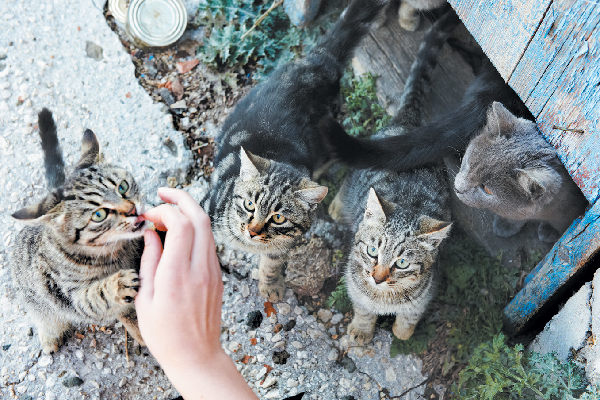
However, not everyone agrees. Dr. Donna Alexander, administrator of Cook County (which includes Chicago) Animal and Rabies Control says that rabies vaccines for cats should be considered core just as they are for dogs. “Rabies has got to be core for cats,” says Dr. Richard Ford, emeritus professor of medicine, North Carolina State University. And, in fact, over half the states require rabies vaccines for cats by law.
“Most people think their cats are strictly indoors and never can be exposed,” Dr. Alexander adds. “That’s a fallacy. We have bats found in homes. And many of those people have cats, and those cats don’t go out. They find the bat and even deliver the dead or nearly dead bat to family members as they would a mouse.”
Also, so many mostly or exclusively outdoor cats may not be vaccinated at all, and they have a potentially high exposure to skunks, raccoons and other wildlife, which may carry rabies.
Based on the CDC recommendation, if an unvaccinated cat comes into contact with any animal thought to be rabid, that unvaccinated cat will be quarantined or euthanized.
“Vaccine-related reactions due to the rabies vaccine are about one in a million and are likely not life threatening,” Dr. Alexander says. “Rabies kills 100 percent of the time, not to mention that anyone exposed to a cat thought to have rabies requires painful and expensive rabies desensitization themselves.”
The CDC confirms Dr. Alexander’s comments, as cats are many times more likely to be discovered with rabies compared to dogs. In 2015, 67 dogs were reported rabid compared to 244 cats.
Cats with high exposure are outdoors only or community cats. If cats are trapped, neutered and returned (TNR), the AAFP panel advises those cats receive vaccines for feline panleukopenia (feline distemper), feline herpesvirus-1, feline calicivirus and rabies.
“One dose will probably immunize cats longer than one year, but legally if the cat does bite someone even a day beyond a year, that cat is not considered protected,” adds Dr. Ford, who was also on the AAFP vaccine guideline panel. “The bottom line: All cats should be vaccinated for rabies.”
How often should we vaccinate cats?
When asking “What vaccines do cats need” “How often do cats need shots” is a question some cat owners have, who insist we’re over-vaccinating.
“When it comes to duration of immunity, the Guidelines are pretty solid, as we have some pretty solid studies” Dr. Nordone says.
However, sometimes there are no owners — those are the cats who land at animal shelters. Dr. Julie Levy, professor of shelter medicine at the Maddie’s Shelter Medicine Program, University of Florida College of Veterinary Medicine, Gainesville, also served on the AAFP Panel. “It’s rewarding that the unique needs of shelters are reflected in the Vaccine Guidelines,” she says. “More cats are surviving shelters, and their health and welfare is an investment worth making. We know that cats will be saved when we vaccinate immediately. Cats are particularly prone to stress and illness in a shelter environment.” Dr. Scherk adds, “Regarding feline leukemia, testing cats prior to vaccination is essential to ensure negative status. Inadvertent use of FeLV vaccine in a cat infected with FeLV is not harmful, but it is also of no benefit.”
The AAFP Advisory Panel recommends administering FeLV vaccines to all kittens but considers the vaccine to be noncore for cats after their one-year booster unless they are at risk of exposure because they have access to outdoors, live with known FeLV-infected cats or live in a multiple-cat environment where the status of all cats coming and going may not be known.
Vaccination of all kittens is recommended because a kitten’s status (indoor versus outdoor, low risk versus high risk) may change, and susceptibility to persistent infection is believed to be highest in kittens. “We now know FeLV may essentially hide in a cat unprotected, then suddenly appear later in life” Dr. Scherk says.
No doubt, at most veterinary practices the primary communicators to cat caretakers may be veterinary technicians or nurses. Julie Legred is a certified technician and the executive director of the National Association of Veterinary Technicians in America. “It’s really difficult when a client is convinced of something, which we know not to be true, based on scientific studies. Our hope is that clients develop trust that we all want the same thing — what’s best for that individual cat.”
Dr. Nordone adds, “Increasingly, we’re seeing individualized medicine — and many vaccine recommendations are indeed based on what’s best for an individual.”
Still stumped on what vaccines cats need?
Take a look at these guidelines.
- American Association of Feline Practitioners Vaccine Guidelines: catvets.com/guidelines/practice-guidelines/feline-vaccination-guidelines
- World Small Animal Veterinary Association Vaccination Guidelines for Dogs and Cats: wsava.org/guidelines/vaccination-guideline
Thumbnail: Photography ©Maica | Getty Images.
Steve Dale, CABC, certified animal behavior consultant, is host of several pet radio shows, appears on TV and speaks around the world. He’s author/contributor to many books, including The Cat: Clinical Medicine and Management, and board member of the Winn Feline Foundation. Blog: stevedale.tv.
Read more about cat health care on Catster.com:

